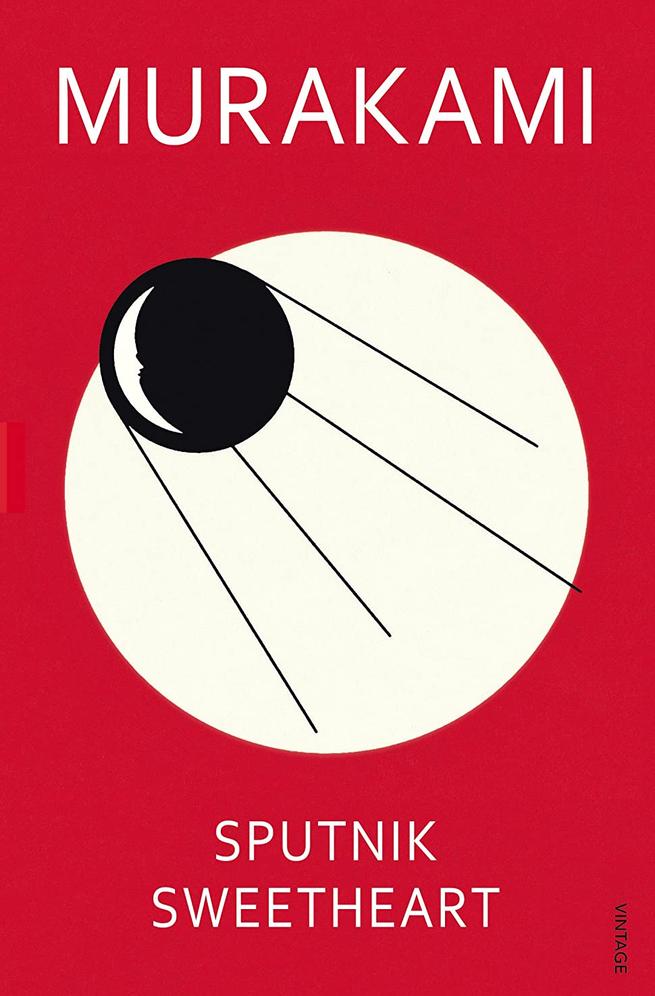
Sputnik Sweetheart
Vintage International
فرمت کتاب
ebook
تاریخ انتشار
2001
Lexile Score
770
Reading Level
3-4
نویسنده
Haruki Murakamiشابک
9780375413469
کتاب های مرتبط
- اطلاعات
- نقد و بررسی
- دیدگاه کاربران
نقد و بررسی

April 1, 2001
Murakami's seventh novel to be translated into English is a short, enigmatic chronicle of unrequited desire involving three acquaintances the narrator, a 24-year-old Tokyo schoolteacher; his friend Sumire, an erratic, dreamy writer who idolizes Jack Kerouac; and Miu, a beautiful married businesswoman with a secret in her past so harrowing it has turned her hair snowy white. When Sumire abandons her writing for life as an assistant to Miu and later disappears while the two are vacationing on a Greek island, the narrator/teacher travels across the world to help find her. Once on the island, he discovers Sumire has written two stories: one explaining the extent of her longing for Miu; the second revealing the secret from Miu's past that bleached her hair and prevents her from getting close to anyone. All of the characters suffer from bouts of existential despair, and in the end, back in Tokyo, having lost both of his potential saviors and deciding to end a loveless affair with a student's mother, the narrator laments his loneliness. Though the story is almost stark in its simplicity more like Murakami's romantic Norwegian Wood than his surreal Wind-Up Bird Chronicles the careful intimacy of the protagonists' conversation and their tightly controlled passion for each other make this slim book worthwhile. Like a Zen koan, Murakami's tale of the search for human connection asks only questions, offers no answers and must be meditated upon to provide meaning. (Apr. 30) Forecast: Long the secret delight of connoisseurs, Murakami has been steadily and quietly acquiring a wider readership. His latest offering breaks no new ground but is packaged in a striking manner and should attract a few newcomers.

December 20, 2000
From The Wind-Up Bird Chronicle to the recent Norwegian Wood, Japanese author Murakami has found uncommon success on these shores. His latest concerns a young man's love for an inaccessible young woman who disappears--but not before leading readers on a wild goose chase through the universe.
Copyright 2000 Library Journal, LLC Used with permission.

Starred review from January 1, 2001
Throughout Murakami's novels and stories, whether the broad-canvas epics (" Hard-"Boiled Wonderland or " The Wind-Up Bird Chronicle") or the more intimate love stories (" Nor"wegian Wood or " South of the Border, West of the Sun"), there is one constant: the tantalizing nearness of the "other side," which may take the form of secret selves, conflicting identities, or alternate worlds. Are these multiple realities equally real, or are they a metaphor for alienation, not only from other people but from the self? You never know for sure with Murakami, and in that uncertainty comes much of the power of his unique, mind-expanding fiction. In his latest work to be translated into English, he returns to the intimate canvas, focusing on another troubled couple torn asunder by the demands of too many worlds. A Japanese college student, the story's narrator, falls in love with a free-spirited young woman, Sumire, determined to become a novelist. They establish an intimate friendship, but she feels no passion for him, or for anyone, until she meets an older woman, Miu, to whom she is instantly attracted. Miu, however, as a result of a disturbing incident in her past, feels disconnected from her passionate self, as if she has become a shadow person. Summoned by Miu to a Greek island, where she and Sumire have been vacationing, the narrator learns that Sumire has vanished, seemingly into thin air. Has she managed to find the portal to that other reality where the passionate Miu exists? We never know, of course, but what we do know is that, at its core, Murakami's world runs on loneliness. As Murakami's people shuttle between alternate worlds and secret selves, always isolating someone trapped behind the last locked door, we can't escape recognizing that this fantastic world feels an awful lot like daily life.(Reprinted with permission of Booklist, copyright 2001, American Library Association.)

























دیدگاه کاربران